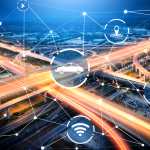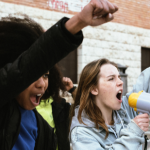Lina Rosa Gomes Vieira da Silva highlights how social projects have played a fundamental role in transforming communities. These initiatives are powerful tools that not only provide learning opportunities but also promote the inclusion of marginalized groups. When we view education as a right for all, social projects become a vital vehicle for making that equity a reality.
How do social projects impact education?
Social projects directly strengthen education by providing support where the traditional system often falls short. Programs such as tutoring, professional training, and adult education have proven essential for social inclusion. These projects offer much more than educational content—they provide the chance for a better life through access to knowledge.
Moreover, many of these initiatives focus on themes that address social inequality, racism, and inclusion, bringing essential discussions to communities and contributing to human development. They educate not only for the job market but also for full citizenship. Lina Rosa Gomes Vieira da Silva emphasizes that socially inclusive education has the power to break historical barriers and open new life opportunities for both youth and adults.
What are examples of social projects transforming education and communities?
Numerous social initiatives have successfully changed the reality of many communities, offering chances for personal and professional growth. One such example is Projeto Guri, which provides free music education to children and adolescents across various regions in Brazil. This project contributes not only to education but also to social inclusion and the strengthening of family and community bonds. Lina Rosa Gomes Vieira da Silva notes that such initiatives open doors to the future by creating new pathways for those who need it most.

Another impactful example is the Ayrton Senna Institute, which operates across Brazil with educational programs focused on the holistic development of children and adolescents. The institute partners with public schools to improve learning outcomes and promote civic education, particularly for the most vulnerable students. Projects like these are essential to ensure that everyone has access to equal educational opportunities, regardless of socioeconomic status or geographic location.
How can collaboration ensure the continuity of these projects?
For social projects to continue making a positive impact on education and equality in Brazil, it is crucial to foster collaboration between civil society, businesses, and government entities. Lina Rosa Gomes Vieira da Silva highlights that partnerships among various sectors are essential to expand the reach of these initiatives and ensure their sustainability. Investing in education—especially through social projects—is not only a government responsibility but a shared commitment.
Additionally, community involvement in the execution and monitoring of these projects is vital. Active participation promotes engagement and leads to more effective solutions. Lina Rosa Gomes Vieira da Silva stresses that the long-term success of social projects depends largely on the collaboration of all involved parties and on ongoing evaluation of the impact achieved.
In a country like Brazil, where social inequality remains a major challenge, social projects play a crucial role in advancing education and equality. Lina Rosa Gomes Vieira da Silva emphasizes that for initiatives like Projeto Guri and the Ayrton Senna Institute to grow and remain sustainable, they need the support and collaboration of everyone—from public authorities to individual citizens. Only through joint efforts can we ensure a fairer and more equal future for all.
Author: Halabeth Gallavan






